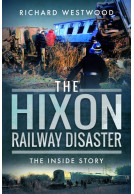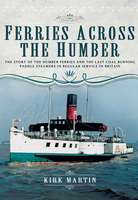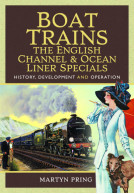The Clapham Train Accident (Hardback)
Causes, Context and the Corporate Memory Challenge
Imprint: Pen & Sword Transport
Pages: 256
Illustrations: 40 mono
ISBN: 9781399073028
Published: 3rd October 2023
(click here for international delivery rates)
Order within the next 1 hour, 35 minutes to get your order processed the next working day!
Need a currency converter? Check XE.com for live rates
| Other formats available - Buy the Hardback and get the eBook for £1.99! | Price |
|---|---|
| The Clapham Train Accident ePub (53.6 MB) Add to Basket | £9.98 |
Clapham was a pivotal point in British railway history. Much technology had been invented and applied to accident prevention by 1988; much more was to come. The Clapham Train Accident considers Clapham in its wider context, using official reports and expert interviews to describe both the causes and the terrible effects. It looks beyond the railway to the external factors acting not only on British Rail, but also the government of the time, and considers the safety improvements that came about as a result.
Finally, the book brings the story up to date and looks at why the lessons learned over thirty years ago still need to be retained in an industry where the baton of safety is all-too-easily dropped during re-organisation, re-branding and after the departure of those who lived through darker days to make ours shine more brightly.
The concatenation of events, the errors, the reorganisations, the financial constraints, that led to Clapham could happen to any business in any industry. On the morning of 12 December 1988, they happened to the railway.
The Clapham Train Accident will act as a cautionary tale for safety practitioners old and new, not just in rail, but also other safety critical industries. It will help readers think actions through to all consequences, helping them too to make safer decisions, particularly when changing a system, technology or method of working
"This is a major study of a vital topic, confidently addressed by a safety expert....comes together with some useful insights... and should appeal to both general and professional audiences."
The Railway Correspondence and Travel Society, The Railway Observer - December 2024
"A serious read on matters not often brought to our notice."
Backtrack Magazine
Excellent. 5 Stars.
Rating: 5 out of 5 stars
NetGalley, Colin Edwards
The Clapham Train Accident by Greg Morse covers far more than that one crash. It shows that the reason trains collided at Clapham Junction in 1988 may have been a wire that touched a terminal, preventing a signal from showing ‘danger’, but Morse traces the causes back through the privatisation of British Rail; through its Sectorisation; and earlier. Although Morse gives us the names of the individuals who were involved in the negligent maintenance work, it makes it clear that their omissions were caused by inadequate direction; time pressures which, in turn, were caused by lack of money; lack of training; etc..
The book doesn’t just cover Clapham. Morse also gives us the same analysis of many other accidents, both before and after Clapham, from Polmont in 1984 and Colwich in 1986 to Carmont in 2020. Ironically, as I started to type this review on the morning of 23rd October 2023, the Rail Accident Investigation Branch has just advised me that its report into an incident at South Wingfield on 26 October 2022 is now published. Two trains entered the same section of track (which the signalling system should never, ever permit). Fortunately, the second driver stopped his train in time and no-one was hurt. However, as Andrew Hall, Chief Inspector of Rail Accidents says, the reasons not only echoed the Clapham crash of 1988, but also a 2017 collision at Waterloo and the derailment at Dalwhinnie in 2021.
Morse’s book is not just about railway accidents, it explains why organisations lose their corporate memory: there are restructures, where older members of staff are perhaps “encouraged” to take a redundancy package; processes are outsourced to companies who deploy staff with no railway experience whatsoever; documents are produced so that the company can obtain BS5750 (“the quality certification”) but are then filed in such a way that no-one can sit down and read through them to get a coherent story.
I commend this book to anyone with an interest in modern railways, but also to anyone with an interest in modern organisations and/or in system failures. It’s a cracking read and never becomes dry and academic. Morse constantly, constantly, show us human beings doing the best job they can in their circumstances at that time - and Appendix One comprises the names of the 35 people who lost their lives at Clapham. Morse never forgets that the victims of the accidents are humans, perhaps with spouses, perhaps with children, such as Bill Webb, a victim of Clapham whose daughter’s party for her eighth birthday was that evening.
Competition as featured in
Rail
The Clapham Train Accident will act as a cautionary tale for everyone old and new, not just in rail, but also other safety critical industries. It will help readers think actions through to all consequences, helping them too to make safer decisions, particularly when changing a system, technology, or method of working.
IRSE journal - October 2023
About Greg Morse
Greg Morse has worked in railway safety since 2005 and is a Fellow of the Chartered Institution of Railway Operators. He has written extensively about the importance of remembering the past when making decisions about the future, and has spoken on that subject at many safety conferences and events. A rail historian, he grew up in Swindon, where he witnessed the end of the town’s railway factory and the birth of the Inter-City 125s.















